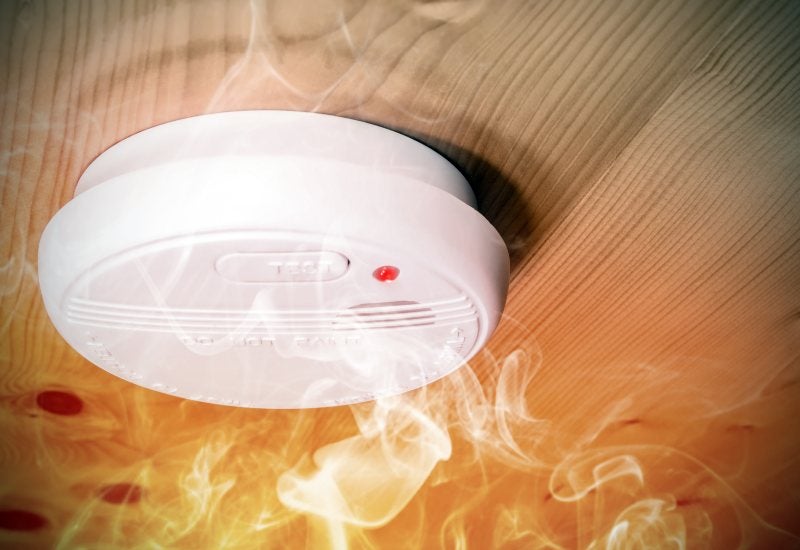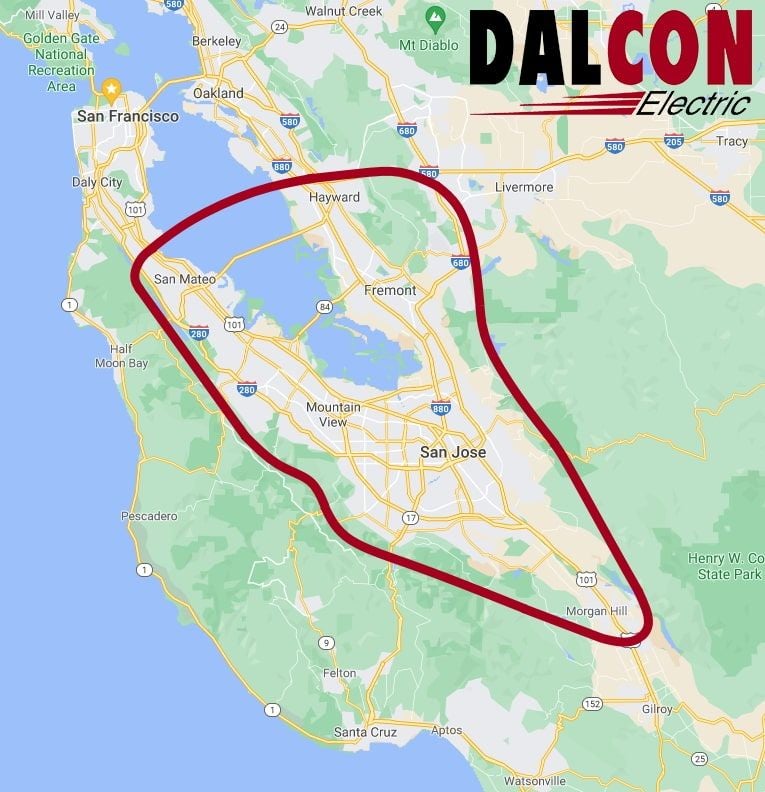Smoke Alarms & Carbon Monoxide Detectors for Homes in San Jose, CA

Facts
- Smoke alarms save lives. Smoke alarms prevent deaths and injuries caused by fires.
- Most people know the proper procedure when a smoke alarm goes off. Unfortunately, people are prone to forget the maintenance it requires.
- The batteries need to be changed at least once a year
- The alarm itself should be replaced every 10 years
- Closed doors may slow the spread of smoke, heat, and fire. Install smoke alarms in every room and outside each separate sleeping area.
- Smoke alarms should be installed on every level of the home.
- Test your smoke alarm once a month
- Two kinds of alarms:
- Ionization smoke alarms are quicker to warn about flaming fires
- Photoelectric alarms are quicker to warn about smoldering fires
People at Risk & What to do
- At the age 65, people are twice as likely to be killed or injured by fires
- Sleep on the ground floor
- If anyone in your household is deaf or is hard of hearing, consider converting or adding flash lights, or vibration alerts in your home
- Plan and construct regular fire drills. If someone in your home cannot escape alone, assign a member of your home to assist him/her in case of a fire
- Make sure everyone in your home can unlock pins and locks from all windows and doors easily
- Keep a telephone nearby in your bedroom and in all rooms that are commonly occupied
Top Causes of Fires
Fires can be accidental, or deliberate. PROTECT YOURSELF!
- Arson and intentional fires : Most occur outside, but the associated deaths, injuries, and losses occur mainly in occupied buildings
- Candles : The top three days for candle usage are Christmas, New Year’s Eve, and New Year’s Day.
- Cooking : Keep an eye on what you fry! Keep flammables away from the cooking area.
- Electrical : Electrical failures and malfunctions. Be sure to get your home fully inspected by a certified electrician
- Heating : The peak months for home heating fires are December, January and February.
- Smoking : Smoking materials (i.e., cigarettes, cigars, pipes, etc.) are the leading cause of fire deaths in the United States.
- Young Fire-Setters : Children playing with fire cause hundreds of deaths and injuries each year
Keep Yourself Safe!
Walk through your home for possible fire hazards and inspect all possible exits and escape routes.
- Washer and dryers can cause fires if not cleaned regularly
- We aware of propane-powered equipment
- Always follow manufacturer’s instructions
- All tanks should be located and used outdoors
- Inspect tanks for possible leaks or malfunctions periodically even if it hasn’t been used
- If you smell a strong odor of gasoline, leave the area, call the fire department, and stay outside
- Hoarding behavior is a safety hazard. This behavior puts firefighters at risk due to falling objects, blocked exits, and makes the searching for civilians more difficult
Carbon Monoxide Detectors
CO enters the body through breathing. CO poisoning can be confused with the same symptoms are the flu, food poisoning, and other illnesses. Some symptoms include shortness of breath, nausea, dizziness, light headedness or headaches. High levels of CO can be fatal and can cause death within minutes – PROTECT YOURSELF!
- Carbon Monoxide detectors should be tested at least once a month and replaced per the manufacturer’s instructions
- If you do not know how to properly replace your CO detector(s) or is unsure if it is working correctly, please call a certified electrician immediately
- If the carbon monoxide trouble alert sounds, check to see if the battery needs to be replaced. If it still sounds, please call a certified electrician to troubleshoot your detector(s)
OR
- If the carbon monoxide trouble alert sounds, immediately move to a fresh air location or by a window/door and call the fire department immediately and wait for them to arrive.
- Generators should be used in a well-ventilated location that is outdoor away from windows, doors, and vents.
- Gas and charcoals grills can produce CO – use them cautiously and outdoors
- DO NOT warm your vehicle, or any fueled engine/motor inside a garage/indoor even if the doors are open
Our Service Area

